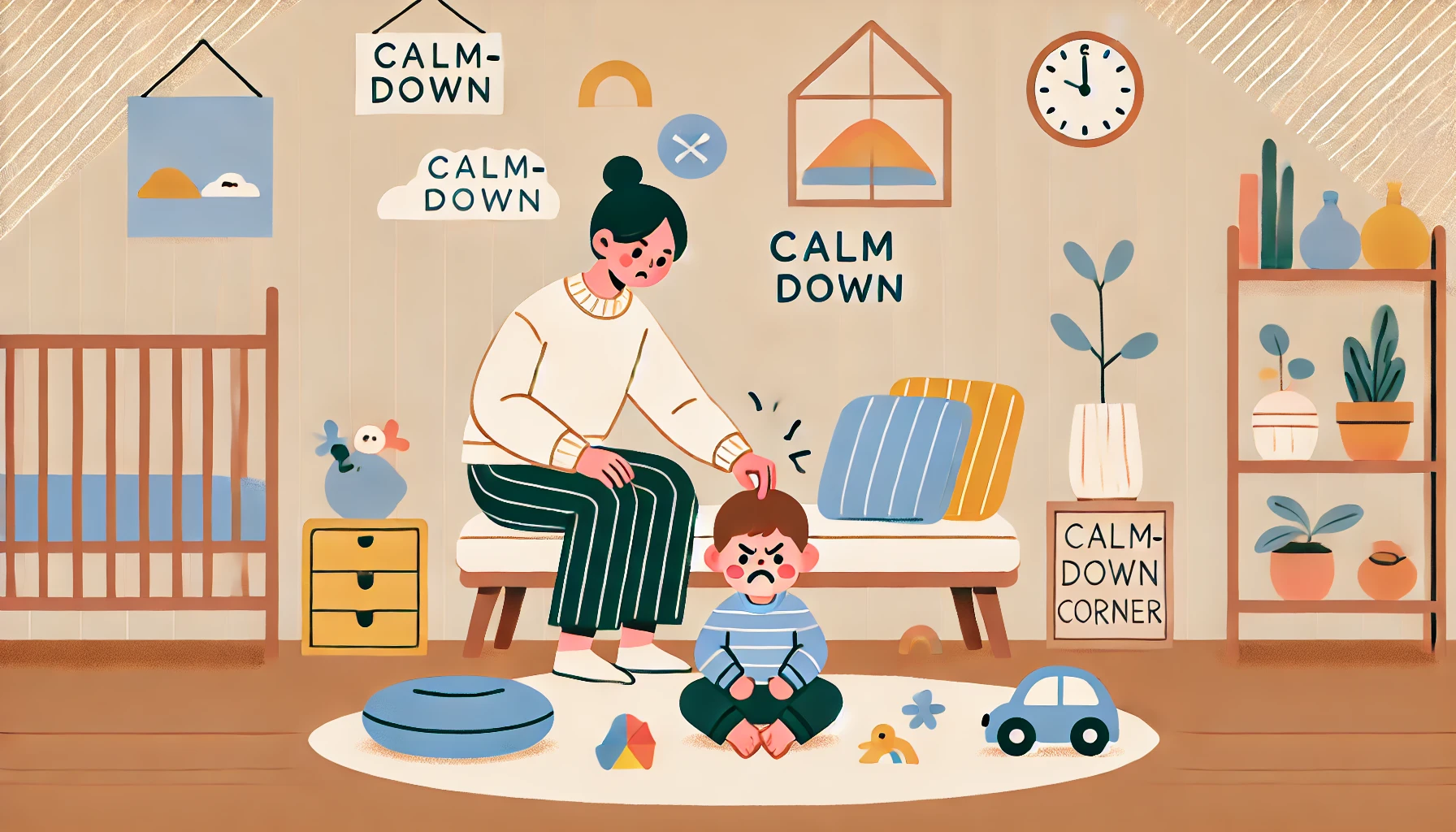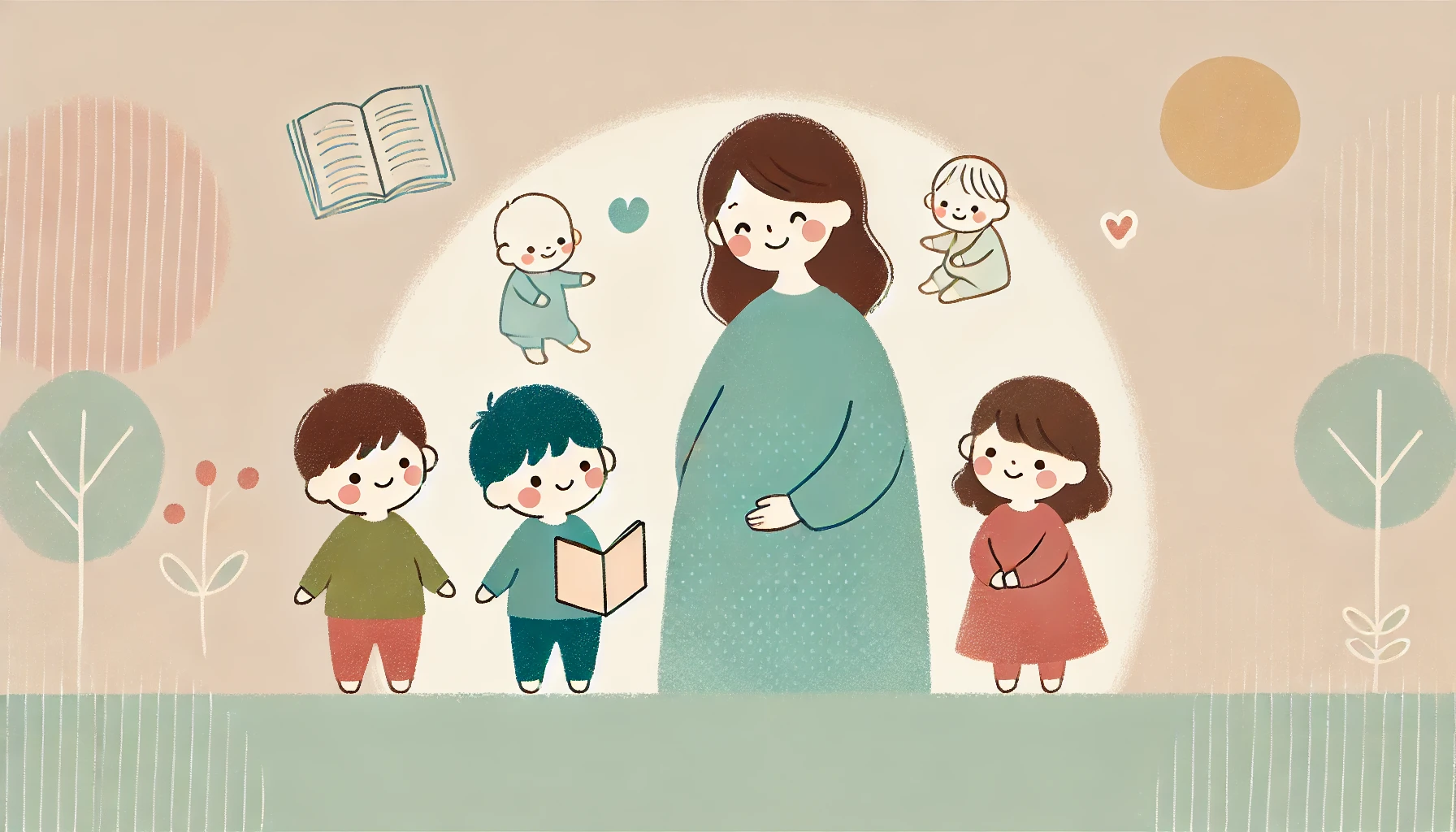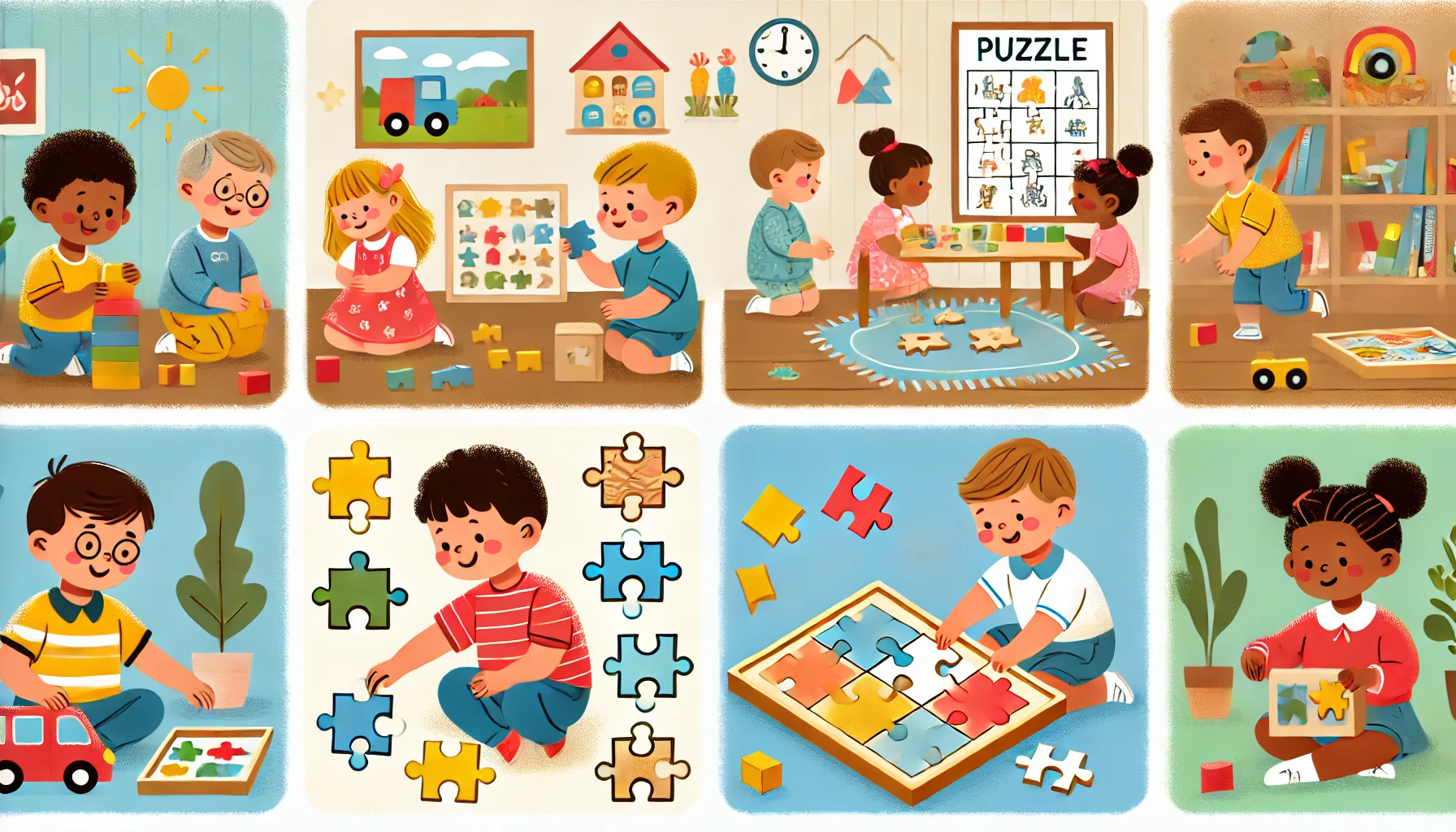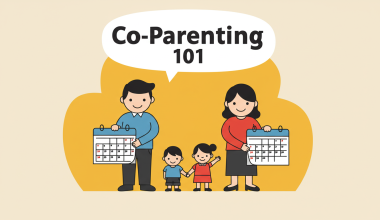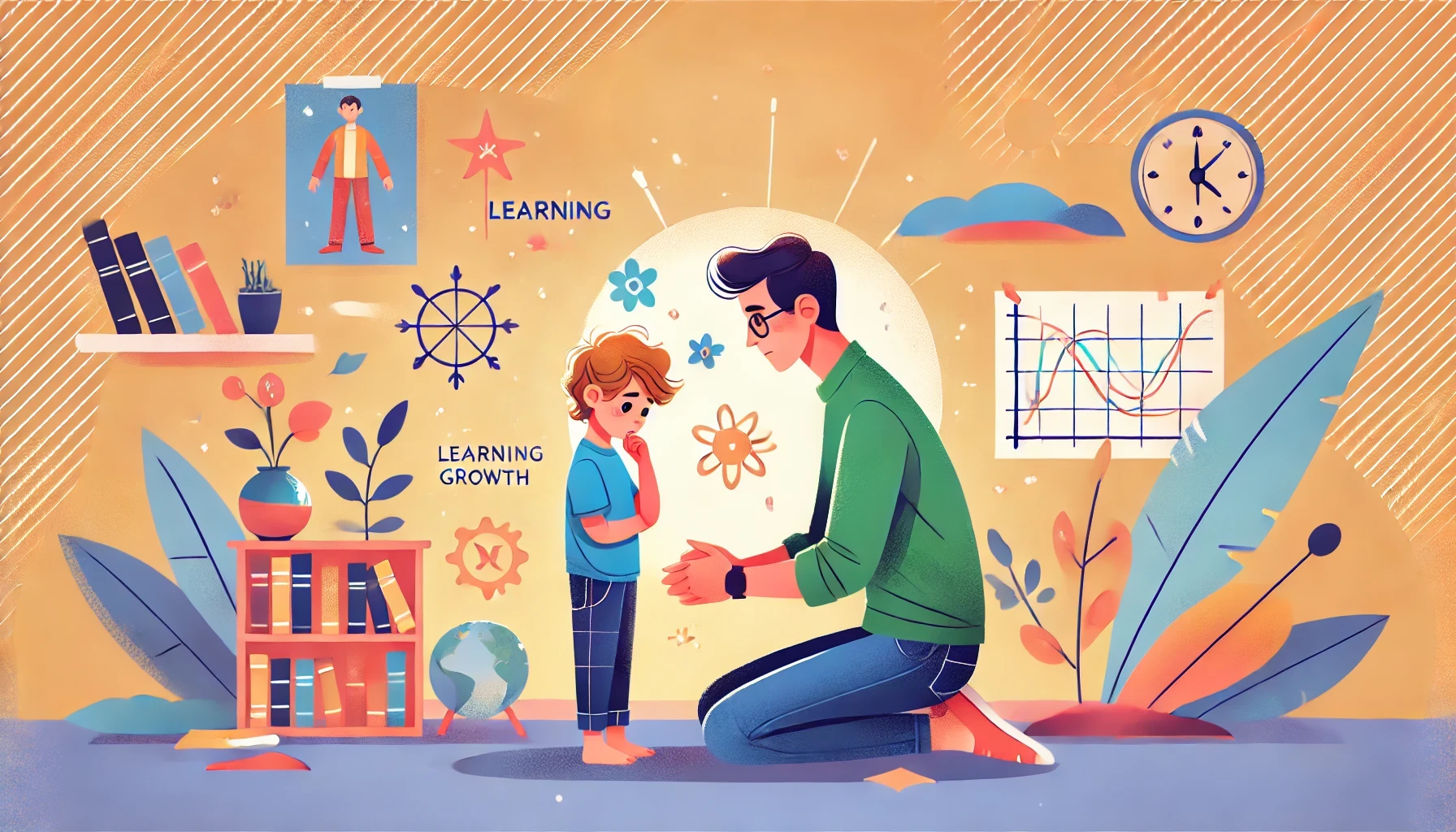Every parent faces moments when their child becomes angry, and knowing how to deal with an angry kid can be challenging.
Anger is a normal emotion, but when it’s not managed well, it can lead to problems for both the child and the family. Understanding and managing a child’s anger is crucial for their emotional development and overall well-being.
Children often express their frustration and unmet needs through anger. Parents need to recognize these signs and respond appropriately. By learning effective strategies to deal with an angry kid, parents can help their children develop healthy ways to cope with their emotions, leading to a more peaceful and understanding household.
Understanding Anger in Children
To know how to deal with an angry kid, it’s important to understand the causes and signs of their anger. Children can become angry for various reasons, and recognizing these can help parents manage their child’s emotions better.
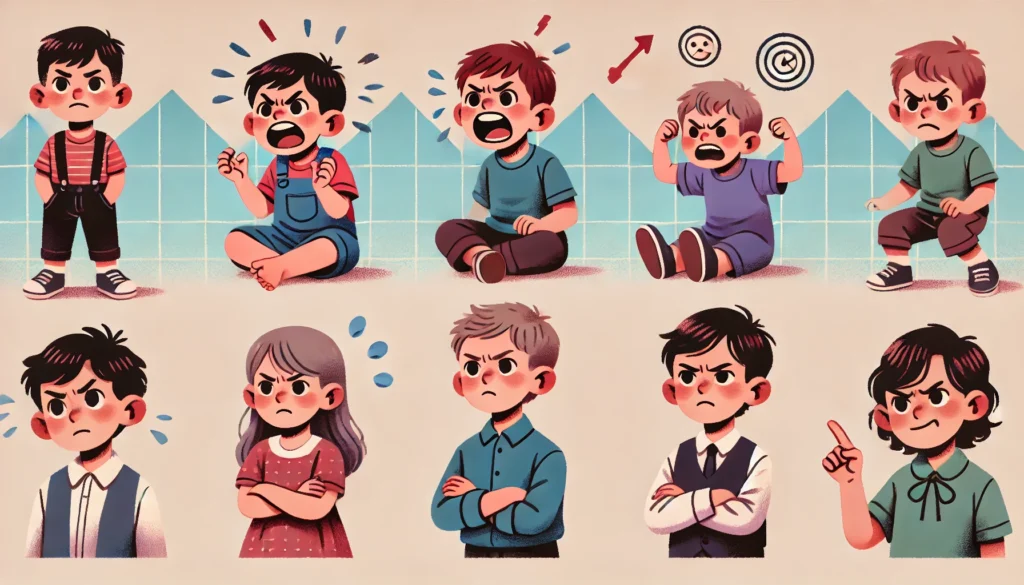
Causes of Anger in Kids
Common Triggers: Children can become angry for many reasons, often related to frustration and unmet needs. Some common triggers include:
- Frustration: When a child can’t accomplish a task or get what they want, they may become frustrated and express this through anger.
- Unmet Needs: Basic needs like hunger, tiredness, or needing attention can cause a child to feel irritable and angry.
- Environmental Factors: Stressful environments, such as loud noises or chaotic settings, can trigger anger in children.
- Changes in Routine: Sudden changes in daily routines or schedules can make children feel insecure and lead to anger outbursts.
Developmental Stages and How They Affect Anger: Different developmental stages impact how children experience and express anger:
- Toddlers (1-3 years): Toddlers often experience anger due to limited communication skills and a desire for independence. They might throw tantrums to express their frustration.
- Preschoolers (3-5 years): As children grow, they start to understand rules but may struggle with self-control. They might become angry when they perceive something as unfair.
- School-Aged Children (6-12 years): At this stage, children have better verbal skills but might still have difficulty managing emotions. Peer relationships and academic pressures can be significant triggers.
- Adolescents (13-18 years): Teenagers experience hormonal changes and strive for autonomy, which can lead to conflicts with parents and authority figures, resulting in anger.
Signs of Anger Issues
Physical and Emotional Signs: Recognizing the signs of anger in children can help parents intervene early. Some physical and emotional signs include:
- Physical Signs: Clenched fists, a red face, rapid breathing, or tense muscles.
- Emotional Signs: Feelings of irritation, frustration, or rage. The child may also express anger through crying or shouting.
Differentiating Between Normal Anger and Anger Issues: It’s important to distinguish between normal, occasional anger and ongoing anger issues:
- Normal Anger: This is typically short-lived and situation-specific. For example, a child may become angry when they can’t have a toy but calms down quickly once distracted or comforted.
- Anger Issues: Persistent anger that affects the child’s daily life may indicate deeper problems. Signs include frequent outbursts, difficulty calming down, aggressive behavior, and problems at school or with peers. If these behaviors persist, it might be necessary to seek professional help.
Understanding these aspects of anger in children is the first step in learning how to deal with an angry kid effectively. Recognizing the causes and signs can help parents respond appropriately and support their child’s emotional development.
ALSO CHECK: How To Explain Where Babies Come From to Kids
Immediate Responses to Anger
Knowing how to deal with an angry kid in the moment is crucial. Immediate responses can help calm a child and prevent the situation from escalating. Here are some effective techniques:
Calming Techniques
Deep Breathing Exercises: One of the simplest and most effective ways to help a child calm down is through deep breathing exercises. Teach your child to take slow, deep breaths.
You can guide them by saying, “Take a deep breath in through your nose, hold it for a few seconds, and then slowly breathe out through your mouth.” This helps reduce stress and calms their mind and body.
The Use of a Calm-Down Corner: A calm-down corner is a designated space where a child can go to relax and regain control of their emotions.
Fill the corner with comforting items like soft pillows, favorite toys, or calming pictures. Encourage your child to use this space when they feel angry. This teaches them to take a break and self-soothe.
De-escalation Strategies
Active Listening: When a child is angry, they need to feel heard. Active listening involves giving your full attention to your child, making eye contact, and acknowledging their feelings. You can say, “I see that you’re upset. Can you tell me what happened?” This shows that you care and are interested in understanding their perspective.
Validating Their Feelings: It’s important to let your child know that their feelings are valid. You can say, “It’s okay to feel angry. Everyone gets angry sometimes.” This helps them feel understood and reassured. Validation can reduce the intensity of their emotions and make them more willing to communicate.
Staying Calm as a Parent: Children often mirror the emotions of the adults around them. Staying calm when your child is angry can help de-escalate the situation. Take deep breaths and speak in a gentle, steady voice. Your calm demeanor can provide a sense of security and help your child feel safe.
By using these immediate responses, parents can effectively manage their child’s anger and teach them valuable coping skills. Knowing how to deal with an angry kid in the moment can prevent situations from escalating and help maintain a peaceful environment.
Long-Term Strategies
To effectively manage a child’s anger, it’s important to implement long-term strategies that help them develop better emotional control and communication skills. Here are some key strategies:
Communication Skills
Teaching Kids to Express Their Feelings: Helping children articulate their emotions is crucial. Encourage your child to use words to describe how they feel. Phrases like “I feel angry because…” can help them understand and communicate their emotions instead of acting out. You can practice this by regularly asking them how they feel and discussing different emotions.
Role-Playing and Practicing Scenarios: Role-playing can be a fun and effective way to teach children how to handle anger. Create scenarios where they might feel angry and practice how to respond appropriately. For example, you can act out a situation where a sibling takes their toy, and they practice using words to express their feelings or taking deep breaths to calm down.
Building Emotional Intelligence
Encouraging Empathy: Teaching empathy helps children understand and respect the feelings of others. Encourage your child to think about how others might feel in different situations. You can ask questions like, “How do you think your friend felt when you said that?” This practice helps them develop compassion and improves their social interactions.
Recognizing and Naming Emotions: Help your child recognize and name their emotions. Use a feelings chart or emotion cards to visually identify different emotions. This can make it easier for them to understand and express what they are feeling. Regularly discussing emotions during calm times can also build their emotional vocabulary.
Consistent Discipline
Setting Clear and Consistent Rules: Clear and consistent rules provide structure and help children know what to expect. Establish rules about acceptable behavior and the consequences for breaking them. Make sure these rules are understood and consistently enforced. Consistency helps children feel secure and understand the boundaries.
Positive Reinforcement: Positive reinforcement encourages good behavior by rewarding it. Praise your child when they handle their anger well or follow the rules. Rewards can be verbal praise, stickers, or extra playtime. Positive reinforcement makes it more likely that they will repeat the desired behavior.
By implementing these long-term strategies, parents can teach their children how to manage their anger effectively. Knowing how to deal with an angry kid involves not just immediate responses but also helping them build skills that will last a lifetime.
Creating a Supportive Environment
Creating a supportive environment is key to helping children manage their anger effectively. A stable and nurturing environment can reduce stress and promote emotional well-being.
Routine and Structure
Importance of a Predictable Schedule: A predictable schedule provides children with a sense of security and stability. Knowing what to expect throughout the day helps reduce anxiety and prevents stress-induced anger. Set consistent times for meals, homework, play, and bedtime. This structure helps children feel more in control and less likely to become frustrated.
Reducing Stress Through Routines: Routines can significantly reduce stress for children. When they know what is coming next, they can transition between activities more smoothly. This predictability can help prevent outbursts by reducing uncertainty and providing a calm and orderly environment.
Healthy Lifestyle Choices
Impact of Diet and Exercise on Mood: A healthy diet and regular exercise play a crucial role in managing a child’s mood and behavior. Balanced meals with plenty of fruits, vegetables, and whole grains can stabilize blood sugar levels, reducing mood swings and irritability. Physical activity helps release energy and reduce stress, making children feel happier and more relaxed. Encourage your child to engage in activities they enjoy, such as playing outside, riding a bike, or participating in sports.
Ensuring Adequate Sleep: Adequate sleep is essential for emotional regulation. Children who do not get enough sleep are more likely to be irritable and have difficulty managing their emotions. Establish a regular bedtime routine to ensure your child gets sufficient rest. This might include calming activities before bed, such as reading a book or taking a warm bath.
Understanding how to deal with an angry kid involves not just addressing the immediate anger but also fostering a stable and healthy environment for long-term well-being.
Seeking Professional Help
Sometimes, managing a child’s anger may require professional assistance. Knowing when to seek help and understanding the types of support available can make a significant difference in your child’s emotional well-being.
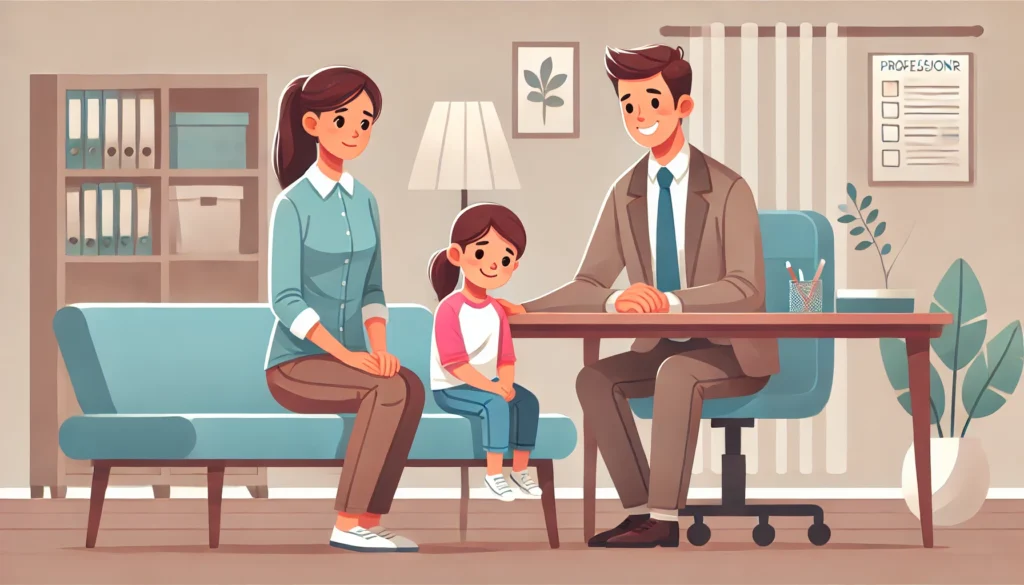
When to Seek Help
Identifying Red Flags: It’s important to recognize the signs that indicate a child’s anger may be more than just a typical emotional response. Red flags include:
- Frequent Outbursts: Regular and intense tantrums that are difficult to control.
- Aggressive Behavior: Physical aggression towards others or themselves.
- Difficulty Calming Down: Trouble calming down after getting angry, even with your support.
- Interference with Daily Life: Anger that affects their performance at school, relationships with peers, or family dynamics.
If you notice these signs, it might be time to seek professional help to understand how to deal with an angry kid effectively.
Consulting with a Pediatrician or Child Psychologist: Your first step should be consulting with a pediatrician. They can rule out any underlying medical conditions that might be contributing to your child’s anger.
A child psychologist or counselor can provide a more detailed assessment and recommend appropriate interventions. These professionals are trained to understand the emotional and developmental needs of children and can offer valuable guidance and support.
Types of Professional Support
Therapy Options: Several therapy options can help manage a child’s anger:
- Cognitive Behavioral Therapy (CBT): CBT helps children understand and change their thought patterns and behaviors that lead to anger. It teaches coping strategies and problem-solving skills.
- Play Therapy: Play therapy allows children to express their emotions through play, helping therapists understand their feelings and work through their anger in a safe environment.
Support Groups and Resources for Parents: Support groups for parents can provide a community of individuals facing similar challenges. These groups offer emotional support, practical advice, and resources to help you manage your child’s anger.
Additionally, many online resources and books are available to guide parents in understanding and addressing their child’s emotional needs.
By recognizing when to seek help and exploring the types of professional support available, parents can better understand how to deal with an angry kid and provide the necessary assistance for their child’s emotional growth and stability.
Preventive Measures
Preventive measures can help reduce the frequency and intensity of anger in children. Teaching them coping mechanisms and fostering positive interactions can make a significant difference.
Teaching Coping Mechanisms
Creative Outlets Like Art and Sports: Engaging in creative activities can be a great way for children to express their emotions. Art, music, and sports provide healthy outlets for releasing pent-up energy and frustration. Encourage your child to draw, paint, play an instrument, or participate in physical activities like soccer, swimming, or dancing. These activities not only help in managing anger but also promote overall well-being.
Relaxation Techniques Such as Mindfulness: Teaching children relaxation techniques can help them manage stress and anger. Mindfulness practices, such as deep breathing exercises, meditation, or guided imagery, can help them calm down and focus. Simple techniques like “belly breathing” can be taught to children to help them relax. Practicing mindfulness regularly can improve their ability to handle difficult emotions.
Positive Parent-Child Interactions
Spending Quality Time Together: Spending quality time with your child can strengthen your relationship and create a supportive environment. Activities like reading together, playing games, or simply talking can build a strong bond. This time together provides opportunities for open communication and helps children feel valued and understood.
Building a Strong Parent-Child Bond: A strong parent-child bond is crucial for emotional development. Show your child love and support through positive reinforcement and encouragement. Listen to their concerns and validate their feelings. Establishing trust and security in your relationship can make it easier for your child to manage their emotions and seek your help when needed.
By teaching coping mechanisms and fostering positive parent-child interactions, parents can effectively prevent anger issues and promote a healthy emotional environment. These preventive measures are essential for learning how to deal with an angry kid and supporting their overall emotional growth.
Final Thoughts
Knowing how to deal with an angry kid can be challenging but very rewarding. By understanding the causes and signs of anger, and using effective calming techniques and long-term strategies, parents can help their children manage their emotions better. Here are some additional tips to consider:
- Model Calm Behavior: Children learn by watching their parents. Stay calm and composed, even in stressful situations.
- Encourage Physical Activity: Regular exercise can help reduce stress and anger.
- Teach Problem-Solving Skills: Help your child think of solutions to problems that trigger their anger.
- Create a Safe Space: Ensure your child knows they have a safe place at home to express their feelings without judgment.
- Practice Gratitude: Encourage your child to focus on positive aspects of their life to shift their mindset.
By combining these extra tips with the strategies discussed, parents can create a supportive and understanding environment that helps their child manage anger effectively.
Additional Resources
Providing additional resources can help parents find further support and information on how to deal with an angry kid. Here are some recommended books, websites, and links to parenting support groups and forums:
Recommended Books
- “The Explosive Child” by Ross W. Greene
- This book offers a compassionate, practical approach to dealing with easily frustrated, chronically inflexible children.
- “Anger Management Workbook for Kids” by Samantha Snowden
- A workbook filled with exercises and strategies to help children understand and manage their anger.
- “What to Do When Your Temper Flares: A Kid’s Guide to Overcoming Problems With Anger” by Dawn Huebner
- This guide helps children understand and manage their anger through interactive exercises.
Recommended Websites
- American Psychological Association (APA)
- Offers resources and articles on child psychology and managing anger in children.
- Child Mind Institute
- Provides information and strategies for dealing with various behavioral and emotional issues in children.
Links to Parenting Support Groups and Forums
- Parenting Network on Reddit
- A supportive forum for parents to discuss challenges and solutions.
- Reddit Parenting Network
These resources can provide additional guidance and support for parents learning how to deal with an angry kid, offering practical advice, professional insights, and community support.
